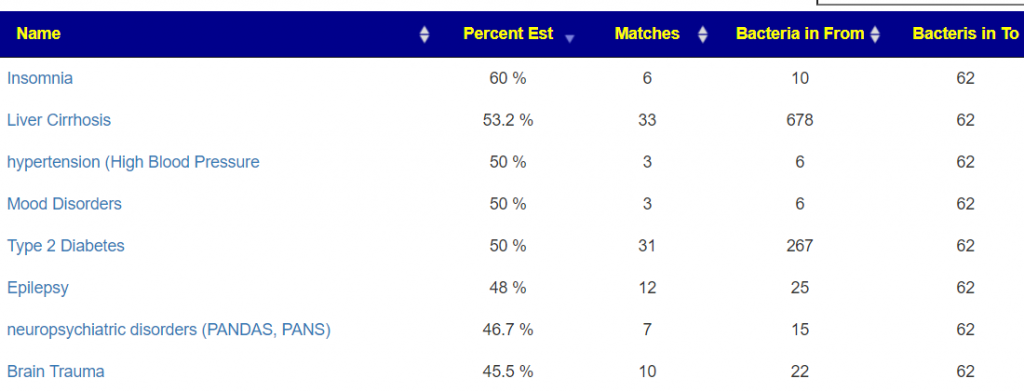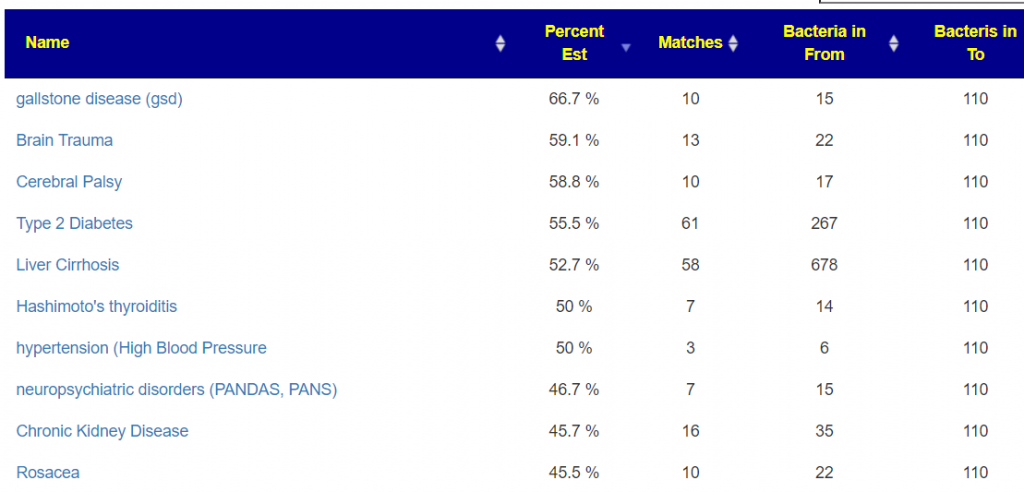This morning I chatted 90 minutes with another data scientist about the microbiome. After the video chat he sent me a link to this recent article: From IBS to ME – The dysbiotic march hypothesis [2020]
” The pathogenesis of the relationship is unknown. Intestinal dysbiosis may be a common abnormality, but based on 1100 consecutive IBS patients examined over a nine years period, we hypothesize that the development of the disease, often from IBS to ME, actually manifests a “dysbiotic march”. In analogy with “the atopic march” in allergic diseases, we suggest “a dysbiotic march” in IBS; initiated by extensive use of antibiotics during childhood, often before school age. Various abdominal complaints including IBS may develop soon thereafter, while systemic symptom like CFS, fibromyalgia and ME may appear years later.”
Related to the above:
- How Myalgic Encephalomyelitis/Chronic Fatigue Syndrome (ME/CFS) Progresses: The Natural History of ME/CFS [2020]
- Can You Trust Your Gut? Implicating a Disrupted Intestinal Microbiome in the Progression of NAFLD/NASH [2020]
- Microbial transitions from health to disease [2021] “dysbiotic microbial populations may be important in the development of approaches to prevent the progression of disease and to restore health in diseased individuals.”
Personally, I have seen someone progress from GERDs to IBS to Chronic Fatigue Syndrome to atypical Crohn’s disease. The progression is not deterministic, with DNA being a significant factor.
I have had on my todo list, creating a microbiome progression map. I have just added it (based solely on gold-standards PubMed studies). It can be seen via https://microbiomeprescription.com/Library/PubMed

When you click the crystal ball . you will be taken to a new page. For example, IBS



Bottom Line
This is based on PubMed studies which are often hit and miss for depth of analysis and reporting shifts. Over time, I expect data to improve and the forecasts on this page to improve.
Sarah Gupta, MD, is a board-certified physician with a special interest in anxiety, depression, sleep, and the human microbiome. A urinary tract infection (UTI) is a common infection. It is usually caused by an overgrowth of bacteria in your urinary tract, your body’s system for making and draining urine. Most women and many men will have at least one UTI during their lifetime. Your likelihood of getting a UTI can be influenced by your personal anatomy, your medical history, and your behaviors.
Amon P, Sanderson I. What is the microbiome? Archives of Disease in Childhood?—?Education and Practice. 2017 ; 102 : 257 ?–? 260